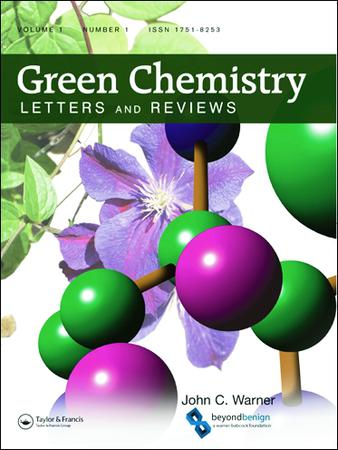求助PDF
{"title":"大流行是否掩盖了废物管理?——新冠肺炎疫情影响研究综述","authors":"M. Ganesapillai, Aditya Tiwari, Rishabh Mehta, Aritro Sinha, Ishita Sarkar, B. Mondal, Vijayalakshmi Chellappa, Amritbir Riar","doi":"10.1080/17518253.2022.2164224","DOIUrl":null,"url":null,"abstract":"The global outbreak of SARS-CoV-2 has spurred a reassessment of Municipal Solid Waste management strategies and approaches. A significant need for sanitation and hygiene was accentuated for disease prevention and control with the onset of the pandemic. With an alteration of the status quo in waste management system, an unprecedented amount of face masks, protective equipment, and other biological wastes was generated in the form of Municipal Solid Waste. This upsurge of potentially infected wastes originated a risk of transmission amongst frontline workers. Furthermore, the potential contamination of Municipal Solid Waste was rendered as a legitimate threat due to improper collection practices, disposal and handling of solid waste. Several novel waste disposal techniques and waste management policies were also introduced during this period. However, the sanitation-policy making-occupational safety nexus remains inadequately explored under the prevalent COVID-19 scenario. Through the prism of shifting waste composition, this review offers a global assessment of existing solid waste management systems during the COVID-19 pandemic. The physiological and psychological hazards faced by the frontline workers were explored and instances of best-case and worst-case policies on solid waste handling were recorded. Modern methods of waste disposal and latest trends of policymaking were evaluated. A model study of unsupervised learning via Partition Around Medoids cluster analysis was undertaken to reveal underlying patterns of waste management policies. Although, the clusters were formed devoid of any socio-economic parameters, this study strives to indicate proof of concept and can serve as a precursor to advanced clustering studies. © 2023 The Author(s). Published by Informa UK Limited, trading as Taylor & Francis Group.","PeriodicalId":12768,"journal":{"name":"Green Chemistry Letters and Reviews","volume":"29 1","pages":""},"PeriodicalIF":5.8000,"publicationDate":"2023-01-02","publicationTypes":"Journal Article","fieldsOfStudy":null,"isOpenAccess":false,"openAccessPdf":"","citationCount":"2","resultStr":"{\"title\":\"Is the pandemic masking waste management? – A review on fallout of the COVID-19 viral contagion\",\"authors\":\"M. Ganesapillai, Aditya Tiwari, Rishabh Mehta, Aritro Sinha, Ishita Sarkar, B. Mondal, Vijayalakshmi Chellappa, Amritbir Riar\",\"doi\":\"10.1080/17518253.2022.2164224\",\"DOIUrl\":null,\"url\":null,\"abstract\":\"The global outbreak of SARS-CoV-2 has spurred a reassessment of Municipal Solid Waste management strategies and approaches. A significant need for sanitation and hygiene was accentuated for disease prevention and control with the onset of the pandemic. With an alteration of the status quo in waste management system, an unprecedented amount of face masks, protective equipment, and other biological wastes was generated in the form of Municipal Solid Waste. This upsurge of potentially infected wastes originated a risk of transmission amongst frontline workers. Furthermore, the potential contamination of Municipal Solid Waste was rendered as a legitimate threat due to improper collection practices, disposal and handling of solid waste. Several novel waste disposal techniques and waste management policies were also introduced during this period. However, the sanitation-policy making-occupational safety nexus remains inadequately explored under the prevalent COVID-19 scenario. Through the prism of shifting waste composition, this review offers a global assessment of existing solid waste management systems during the COVID-19 pandemic. The physiological and psychological hazards faced by the frontline workers were explored and instances of best-case and worst-case policies on solid waste handling were recorded. Modern methods of waste disposal and latest trends of policymaking were evaluated. A model study of unsupervised learning via Partition Around Medoids cluster analysis was undertaken to reveal underlying patterns of waste management policies. Although, the clusters were formed devoid of any socio-economic parameters, this study strives to indicate proof of concept and can serve as a precursor to advanced clustering studies. © 2023 The Author(s). Published by Informa UK Limited, trading as Taylor & Francis Group.\",\"PeriodicalId\":12768,\"journal\":{\"name\":\"Green Chemistry Letters and Reviews\",\"volume\":\"29 1\",\"pages\":\"\"},\"PeriodicalIF\":5.8000,\"publicationDate\":\"2023-01-02\",\"publicationTypes\":\"Journal Article\",\"fieldsOfStudy\":null,\"isOpenAccess\":false,\"openAccessPdf\":\"\",\"citationCount\":\"2\",\"resultStr\":null,\"platform\":\"Semanticscholar\",\"paperid\":null,\"PeriodicalName\":\"Green Chemistry Letters and Reviews\",\"FirstCategoryId\":\"92\",\"ListUrlMain\":\"https://doi.org/10.1080/17518253.2022.2164224\",\"RegionNum\":3,\"RegionCategory\":\"化学\",\"ArticlePicture\":[],\"TitleCN\":null,\"AbstractTextCN\":null,\"PMCID\":null,\"EPubDate\":\"\",\"PubModel\":\"\",\"JCR\":\"Q1\",\"JCRName\":\"CHEMISTRY, MULTIDISCIPLINARY\",\"Score\":null,\"Total\":0}","platform":"Semanticscholar","paperid":null,"PeriodicalName":"Green Chemistry Letters and Reviews","FirstCategoryId":"92","ListUrlMain":"https://doi.org/10.1080/17518253.2022.2164224","RegionNum":3,"RegionCategory":"化学","ArticlePicture":[],"TitleCN":null,"AbstractTextCN":null,"PMCID":null,"EPubDate":"","PubModel":"","JCR":"Q1","JCRName":"CHEMISTRY, MULTIDISCIPLINARY","Score":null,"Total":0}
引用次数: 2
引用
批量引用
Is the pandemic masking waste management? – A review on fallout of the COVID-19 viral contagion
The global outbreak of SARS-CoV-2 has spurred a reassessment of Municipal Solid Waste management strategies and approaches. A significant need for sanitation and hygiene was accentuated for disease prevention and control with the onset of the pandemic. With an alteration of the status quo in waste management system, an unprecedented amount of face masks, protective equipment, and other biological wastes was generated in the form of Municipal Solid Waste. This upsurge of potentially infected wastes originated a risk of transmission amongst frontline workers. Furthermore, the potential contamination of Municipal Solid Waste was rendered as a legitimate threat due to improper collection practices, disposal and handling of solid waste. Several novel waste disposal techniques and waste management policies were also introduced during this period. However, the sanitation-policy making-occupational safety nexus remains inadequately explored under the prevalent COVID-19 scenario. Through the prism of shifting waste composition, this review offers a global assessment of existing solid waste management systems during the COVID-19 pandemic. The physiological and psychological hazards faced by the frontline workers were explored and instances of best-case and worst-case policies on solid waste handling were recorded. Modern methods of waste disposal and latest trends of policymaking were evaluated. A model study of unsupervised learning via Partition Around Medoids cluster analysis was undertaken to reveal underlying patterns of waste management policies. Although, the clusters were formed devoid of any socio-economic parameters, this study strives to indicate proof of concept and can serve as a precursor to advanced clustering studies. © 2023 The Author(s). Published by Informa UK Limited, trading as Taylor & Francis Group.


